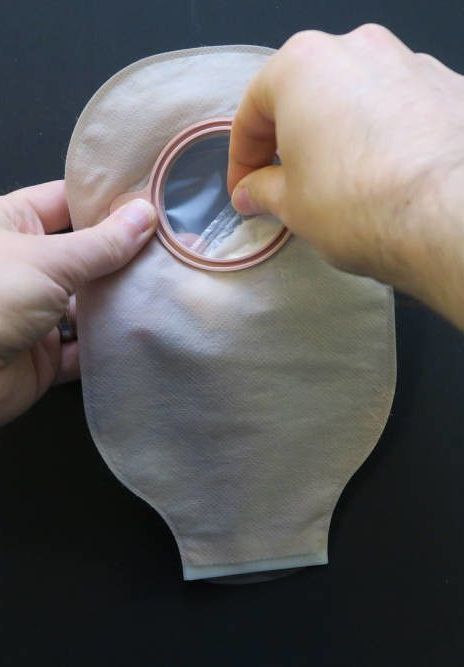Get in touch
Email: info@empoweringabilityjourney.com.au
Phone: 0451 093 210 or 1300 045 841
Say Goodbye to Skin Issues and Hello to Confidence
Living With a Stoma - How to Stay Comfortable and Healthy Every Day
Caring for a stoma is an important part of staying healthy and feeling good. Whether it's a colostomy, ileostomy, or another type, taking care of it properly helps prevent infections, keeps skin healthy, and makes daily life easier.
Let's talk about why stoma care matters and how you can do it the right way.
What Happens When You Take Good Care of Your Stoma
Healthy Skin Means a Happy You
Keeping the skin around your stoma clean and dry helps prevent redness, itching, and infections. Taking care of your skin means fewer problems and more comfort.
More Confidence in Daily Life
When your stoma is well-maintained, you can go about your day with confidence, knowing leaks and discomfort are less likely to happen.
Spot Problems Early
Checking your stoma regularly helps you notice changes like swelling, leaks, or irritation before they turn into bigger issues.
Fewer Infections and Health Issues
Good hygiene and proper care routines help lower the chance of infections and other complications, keeping you healthier in the long run.

Nha's Tip for Home Safety
Discussing home safety with your nurse can identify potential hazards.
Simple changes, like removing loose rugs, can prevent accidents.
Nha's Tip for Home Safety
Discussing home safety with your nurse can identify potential hazards.
Simple changes, like removing loose rugs, can prevent accidents.
What Happens When You Don’t Clean Your Stoma Properly
Higher Risk of Infections
Not cleaning your stoma properly can lead to infections that might require medical treatment.
Skin Problems
If the stoma bag isn’t changed often enough or if the skin isn't cleaned well, it can lead to rashes, soreness, and irritation.
Serious Health Complications
Ignoring signs like blockages or leaks can lead to dehydration, fever, or more serious conditions that may require hospital care.
Lower Confidence and Independence
Discomfort and worry about leaks can make it harder to do the things you enjoy.
The Easy-to-Follow Guide for Stoma Health and Comfort
Keep Things Clean
Wash your hands before and after handling your stoma. Clean around it gently using warm water and soft cloths. Avoid harsh soaps that might irritate your skin.
Check Your Skin Daily
Look for any redness, swelling, or unusual changes. If something doesn’t seem right, talk to your healthcare provider.
Make Sure the Stoma Bag Fits Right
A well-fitted bag prevents leaks and keeps your skin dry and healthy. If you notice leaks or discomfort, you might need a different size or type.
Change Your Bag as Needed
How often you change your stoma bag depends on the type you use, but doing it regularly helps prevent skin problems and odour.
Keep a Record
Tracking when you change your bag and any skin issues can help you and your healthcare provider manage your stoma better.

Breaking Down Stomas - The Simple Explanation
Different Types of Stomas
- Colostomy: When part of the colon is brought to the surface of the abdomen.
- Ileostomy: Involves the small intestine, usually producing more liquid output.
- Urostomy: Redirects urine through an opening in the abdomen.
Common Problems and How to Avoid Them
- Leaks: Ensure a good fit and change the bag regularly.
- Skin Irritation: Use gentle cleaning methods and the right products.
- Blockages: Be aware of changes in output and seek help if needed.
Frequently Asked Questions
How often should I change my stoma bag?
It depends on the type of bag you use, but generally, it should be changed every 1 to 3 days or when it’s about one-third full.
What foods should I avoid?
Some foods can cause gas, bloating, or blockages. Common ones to watch out for include beans, cabbage, and nuts. Try new foods slowly to see how your body reacts
How do I prevent leaks?
Make sure your stoma bag fits well and is applied correctly. Check for signs of wear and change it regularly.
What should I do if my skin gets irritated?
Try using barrier wipes and creams to protect the skin. If irritation continues, talk to your healthcare provider.
Can I still swim and exercise?
Yes! With the right stoma products, you can stay active. Many people swim, run, and even play sports with no issues.
Let's Connect
Taking care of your stoma doesn’t have to be complicated. With the right routine and a bit of care, you can stay healthy and enjoy life without worry.
Send Us a Message
Contact Us
We will get back to you as soon as possible.
Please try again later.
Loved and recommended by Athletic Koala NDIS Website Team

